Best Czech Alcoholic Beverage Types
České pivo is a term that refers to a variety of beers produced throughout the whole Czech Republic that have a Protected Geographical Indication (PGI) mark. The mark is used by fourteen breweries in the country for more than 80 brands of beer, which is about 65% of the total domestic market.
The first records of brewing beer of excellent quality in the country are connected to the Brevnov Monastery, where the monks produced beer all the way back in 993 AD. The beers are distinguished by the top-quality raw materials used in the process, the traditional methods of brewing, and the local know-how passed on from generation to generation.
Chodské pivo has been produced in the historic Chodsko region (Plzeň) since the 12th century. It is made from locally sourced water with low mineral content, hops, malt, and yeast. Only Žatecký poloraný červeňák, Sládek, and Premiant hop varieties can be used in its production.
Due to the two-stage fermentation process, lengthy maturation, and the choice of specific raw materials, Chodské pivo is golden, rich, and malty, while its flavor is slightly bitter and strong. This beer is held in high regard, and it was even supplied to the royal courts of Prague and Bavaria.
Pálava is a Czech grape variety that was created as a cross between Müller Thurgau and Gewürztraminer (Tramín červený). In 1977, this hybrid was officially recognized as a grape variety. It is mainly cultivated in Moravia, on the foothills of the eponymous mountain, where it was first created.
Apart from the Czech Republic, it is only found in neighboring Slovakia. Pálava wines are typically full-bodied and aromatic, and though they are subtly sweet, the best examples are usually well-balanced with acidity and freshness. These golden-yellow wines tend to display aromas of roses, vanilla, and tropical fruit, while their typical characteristic is subtle spiciness reminiscent of pepper and nutmeg.
Pilsner is a beer style that originated in Pilsen (Plzeň), a city in western Bohemia. It was first brewed in 1842, making it one of the youngest beer styles to appear in modern brewing. The style originated when the citizens of Pilsen, who grew unhappy with the quality of the beer, decided to build Bürger Brauerei (Citizens’ Brewery), which would later become Pilsner Urquell.
They eventually brought a Bavarian brewmaster Josef Groll—who went to create the first pilsner brew. Although the initial idea was to create a Bavarian-style lager, the use of Czech ingredients influenced the emergence of a new style. The original pilsner, which was one of the first versions of a clear, light-colored beer, was made with light malted barley from Moravia and Saaz hops.
VARIATIONS OF Pilsner
THE BEST Pilsner Lagers
Černá Hora is produced in the namesake municipality and in the oldest brewery in Moravia that dates from 1530. The beer comes in several varieties, which are all produced with traditional techniques and methods that have been present in the area from the 13th century.
Two basic varieties include clean and hoppy light beers and moderately bitter dark beers. Specific styles include light lagers, light draught beer, unfiltered draught beer, dark lagers, and semi-dark draught beer. Caramel and coloring malt are used in the process to give the dark beers their typical caramel flavor and a delicate bitterness.
Českobudějovické pivo is a moderately bitter beer produced in the Czech Republic. The water used in the preparation process must come from the underground lake of the České Budějovice Basin, the hops come from the Žatec area, and the malting barley is grown in the Moravia region.
It comes as a lightly malty pale beer and as an intense dark version that has dominant roasted aromas. Due to the use of Žatec hops, the beer has a unique and pleasant taste, making it a very popular alcoholic drink in the country. The beer comes in five varieties: pale lager, Kräusened pale lager, pale draught, special beer, non-alcoholic beer, and dark lager.
Znojemské pivo is a beer produced in several varieties in the Znojmo area in the Czech Republic. It can be produced as a light or dark draught beer and a lager. Only three ingredients are used in the production process – barley malt, water, and hops.
The water is provided by the city's supply system, while the hops are of the Žatecký poloraný červeňák and Magnum Hallertau varieties. The alcohol content varies depending on the style; light draughts range from 3,2 to 4,0%, dark draughts from 3,8 to 4,0%, and lagers from 4,5 to 5,0% ABV.
Cabernet Moravia is a hybrid grape from the Czech Republic that was created by crossing Zweigelt (Zweigeltrebe) and Cabernet Franc varieties. The grape was created by Lubomír Glos from Moravská Nová Ves, and although it was first crossed in the 1970s, it was officially registered in 2001.
Plantings of Cabernet Moravia are not abundant, but the grape has shown great potential in South Moravia. The best examples made with Cabernet Moravia are usually dark garnet in color, with typical aromas of black currant, cherries, blueberries, and peppery nuances.
Březnický ležák is a Czech-style pilsner that is produced in the Municipality of Březnice. It is a golden-colored beer with an alcohol content that ranges from 4.69 to 5.53% ABV. The taste is delicate and typically bitter, with a clean hoppy aroma and crisp flavor.
The beer is made from malt, granulated hops of the Žatecký poloraný červeňák variety, hop extract, sugar, and water from local natural wells. The only current producer of this beer is the company called Pivovar Herold Březnice, which has been brewing it since 1999.
The original Becherovka was created by a British doctor Frobrig. He passed down the recipe to Josef Becher who perfected it and initially put it on the market as a medical remedy in 1807, under the name English Bitter. Despite the political and war turmoil in the 20th century, Becherovka remained a leading Czech product and is still produced according to the original, secret recipe.
It is made with a combination 20 different spices and herbs that are macerated in alcohol to create a base which is then cut with water and sugar and left to age in oak casks. Becherovka is traditionally enjoyed neat or over ice, but it can also work well in cocktails, out of which the most popular is Beton—a combination of Becherovka and tonic water that was invented in 1967 for the international EXPO exhibition in Montreal.
Best Czech Alcoholic Beverage Producers
Božkov is a renowned Czech spirits brand established in 1948, known for its high-quality products and rich tradition. Its flagship product, Božkov Original, is a classic "tuzemák" and the best-selling spirit in the Czech Republic. The brand offers a wide range of rums, vodkas, and liqueurs, crafted using premium ingredients such as molasses alcohol, soft Pilsen water, sugar syrup, special caramel, and vanilla aroma.
These elements give Božkov products their characteristic golden color and natural flavor. Božkov has earned a reputation as one of the most trusted brands, with a significant presence in the Czech market.
AWARDS

The Rum & Cachaça Masters - Gold
2022
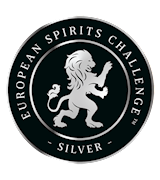
European Spirits Challenge - Silver
2024, 2023
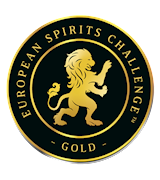
European Spirits Challenge - Gold
2023
BEST Stock Plzen‐Božkov Spirits
AWARDS

Concours Mondial de Bruxelles - Grande Médaille d'or
2023, 2022, 2021, 2020
AWARDS

Asia Wine Trophy - Grand Gold
2022

Berlin Wine Trophy - Grand Gold
2022
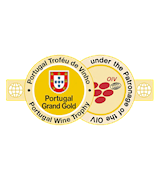
Portugal Wine Trophy - Grand Gold
2022
BEST Slámové víno Oldřich Drápal Wines
AWARDS

Concours International de Lyon - Gold
2024
BEST Dejf Brewery Beers
AWARDS

IWSC- International wine & spirit competition - Spirit Gold Outstanding
2024
BEST Martenz Spirits
Best Czech Alcoholic Beverages
AWARDS
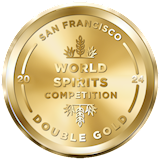
SFWSC - San Francisco World Spirits Competition - Double Gold
2024, 2023
AWARDS

IWSC- International wine & spirit competition - Spirit Gold Outstanding
2024
AWARDS

IWSC- International wine & spirit competition - Spirit Gold Outstanding
2024
AWARDS
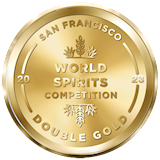
SFWSC - San Francisco World Spirits Competition - Double Gold
2023
AWARDS
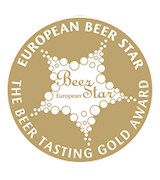
European Beer Star - Gold
2023
Fernet Stock is a traditional Czech herbal liqueur renowned for its intense, bitter flavor. Crafted since 1927 by Stock Plzeň-Božkov s.r.o. in Plzeň, Czech Republic, it incorporates a secret blend of approximately 14 herbs sourced from the Mediterranean and the Alps.
This meticulous selection contributes to its distinctive character. The liqueur is typically enjoyed as a digestif, served neat or over ice, and is also a versatile component in various cocktails. Its deep bitterness and complex herbal notes make it a unique addition to any beverage selection.
AWARDS

European Spirits Challenge - Gold
2023
Fernet Stock Citrus is a modern twist on the classic Czech herbal liqueur, Fernet Stock. It blends the traditional bitter notes of its 14-herb recipe with the refreshing flavors of citrus fruits. The result is a smoother and less bitter liqueur with a milder and more vibrant taste, appealing to a broader audience.
With an alcohol content of 27% ABV, it is lighter than the original Fernet Stock, making it easier to enjoy. Fernet Stock Citrus is best served well-chilled or over ice. It can be enjoyed neat, mixed with soda or tonic water, or as a base for refreshing cocktails.
AWARDS

European Spirits Challenge - Gold
2023
AWARDS

European Spirits Challenge - Gold
2023
AWARDS

International Brewing Awards - Gold
2017











TasteAtlas food rankings are based on the ratings of the TasteAtlas audience, with a series of mechanisms that recognize real users and that ignore bot, nationalist or local patriotic ratings, and give additional value to the ratings of users that the system recognizes as knowledgeable. TasteAtlas Rankings should not be seen as the final global conclusion about food. Their purpose is to promote excellent local foods, instill pride in traditional dishes, and arouse curiosity about dishes you haven’t tried.















































